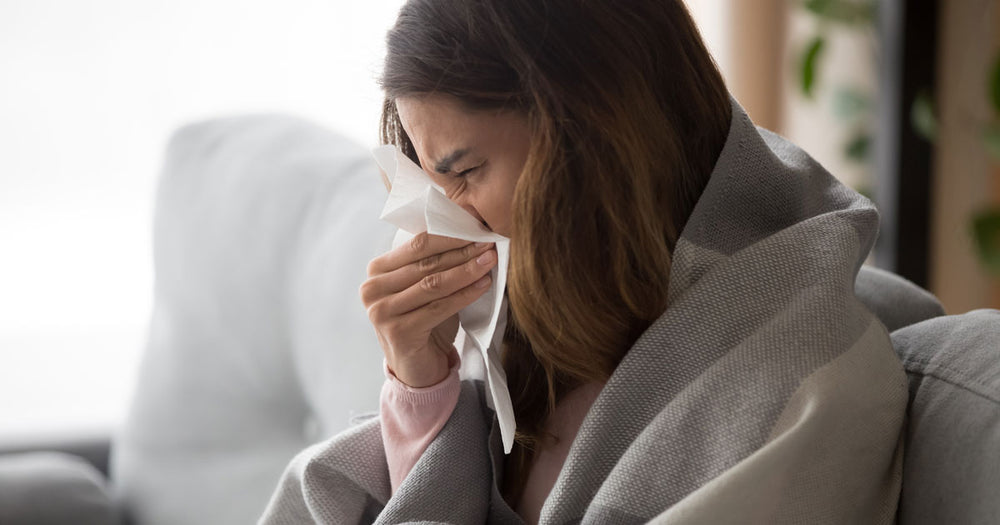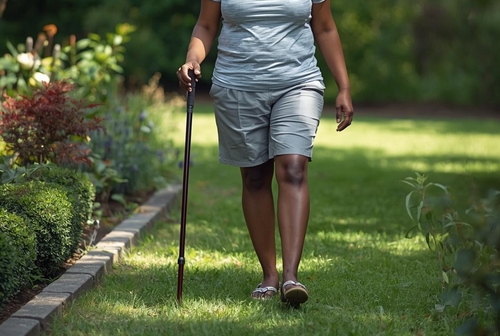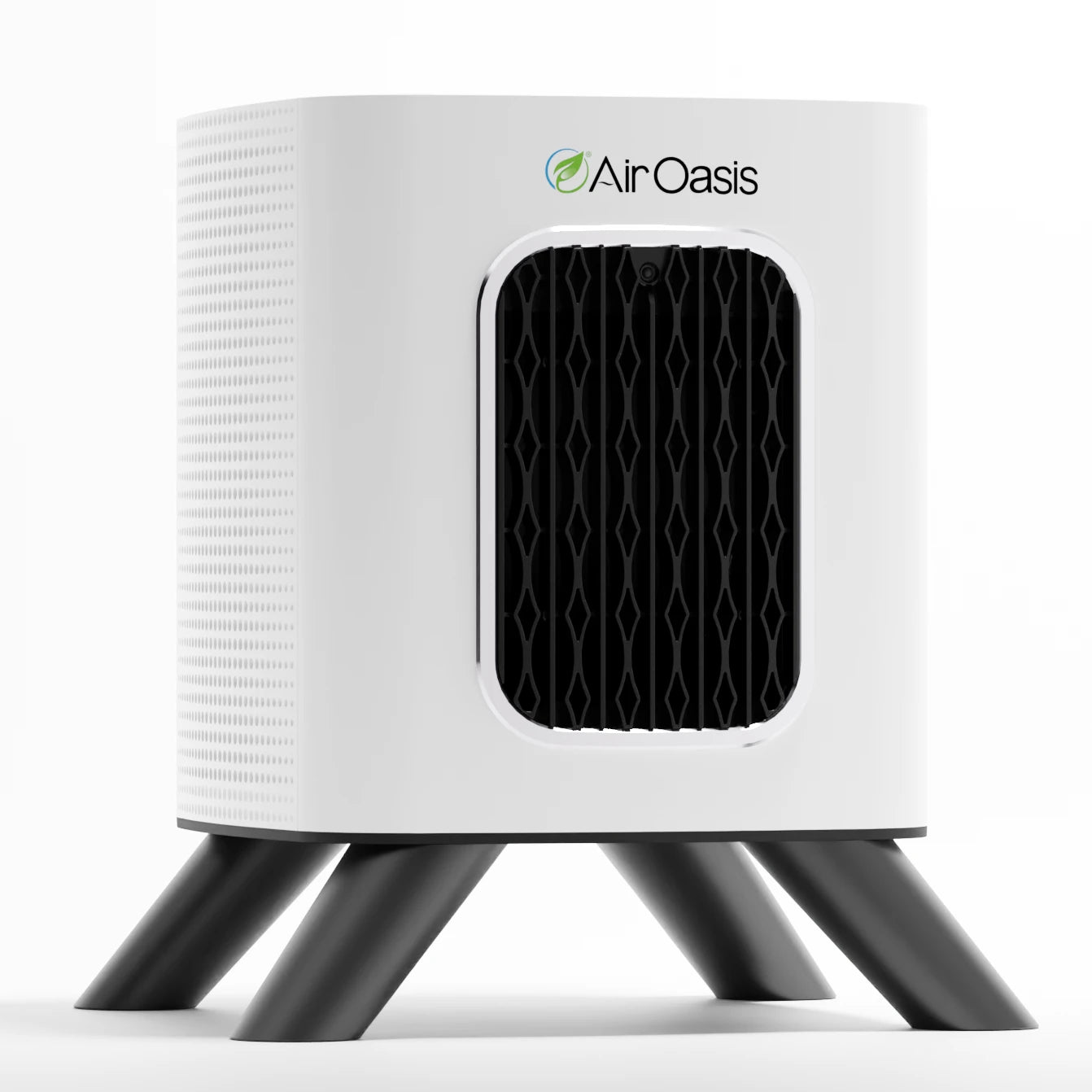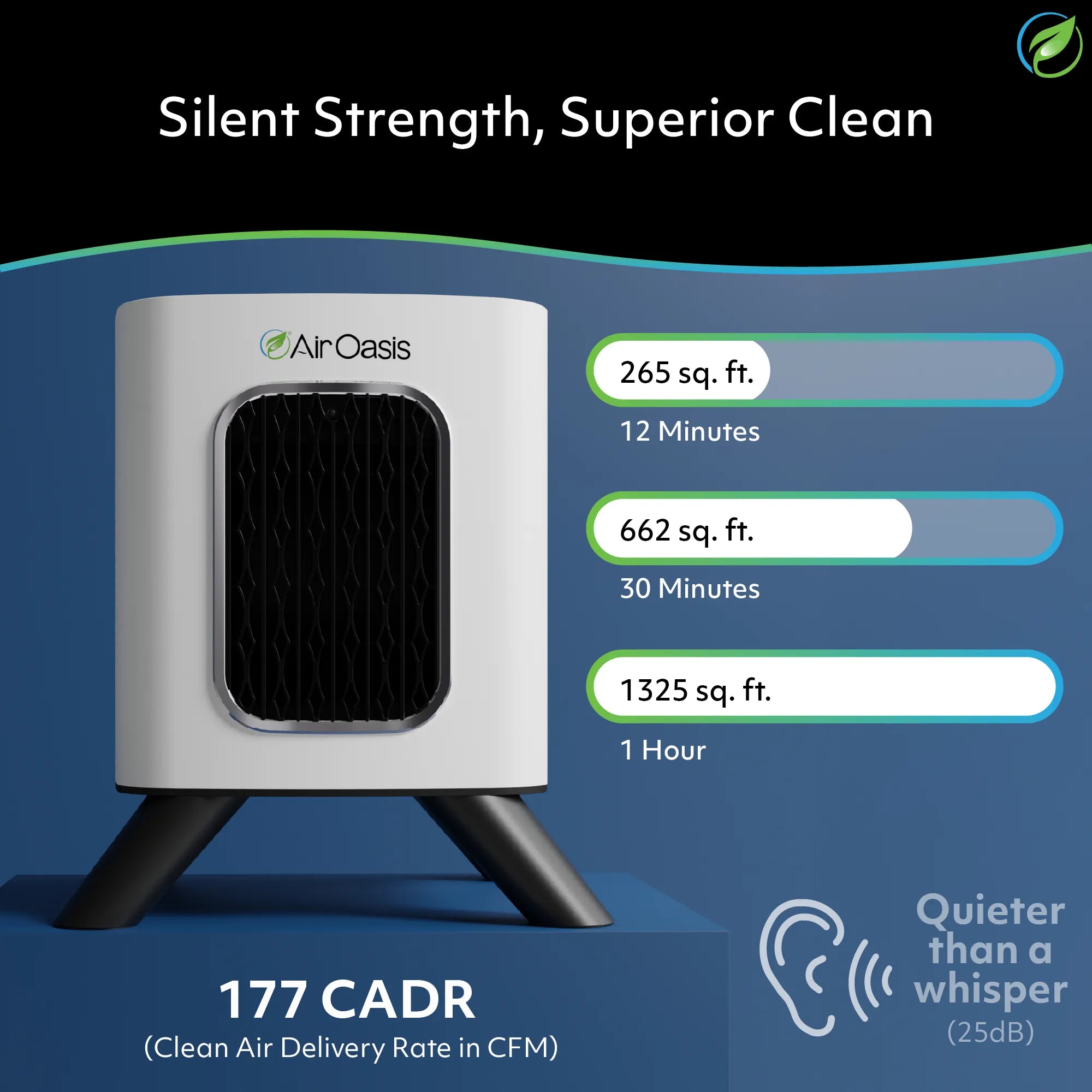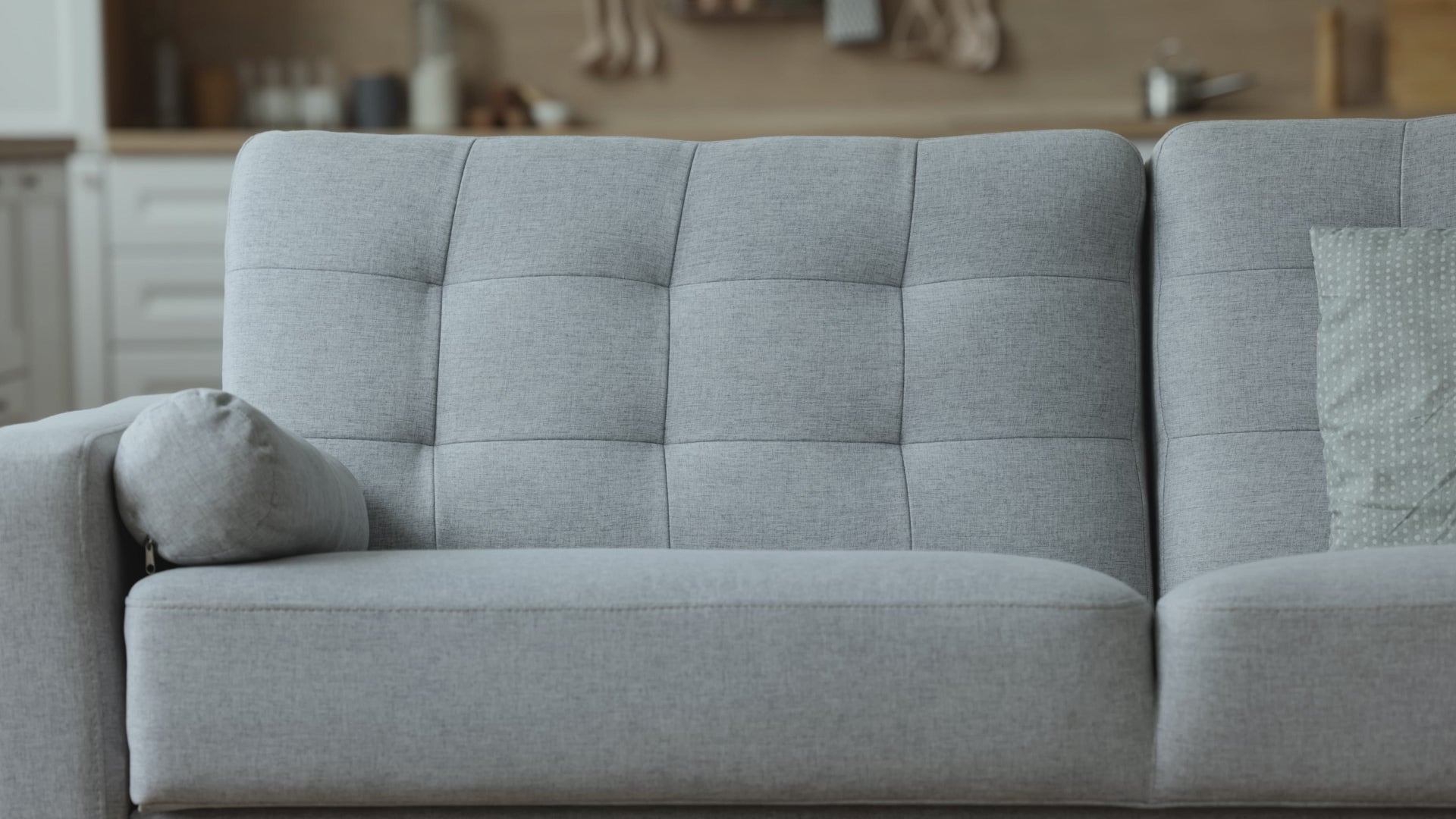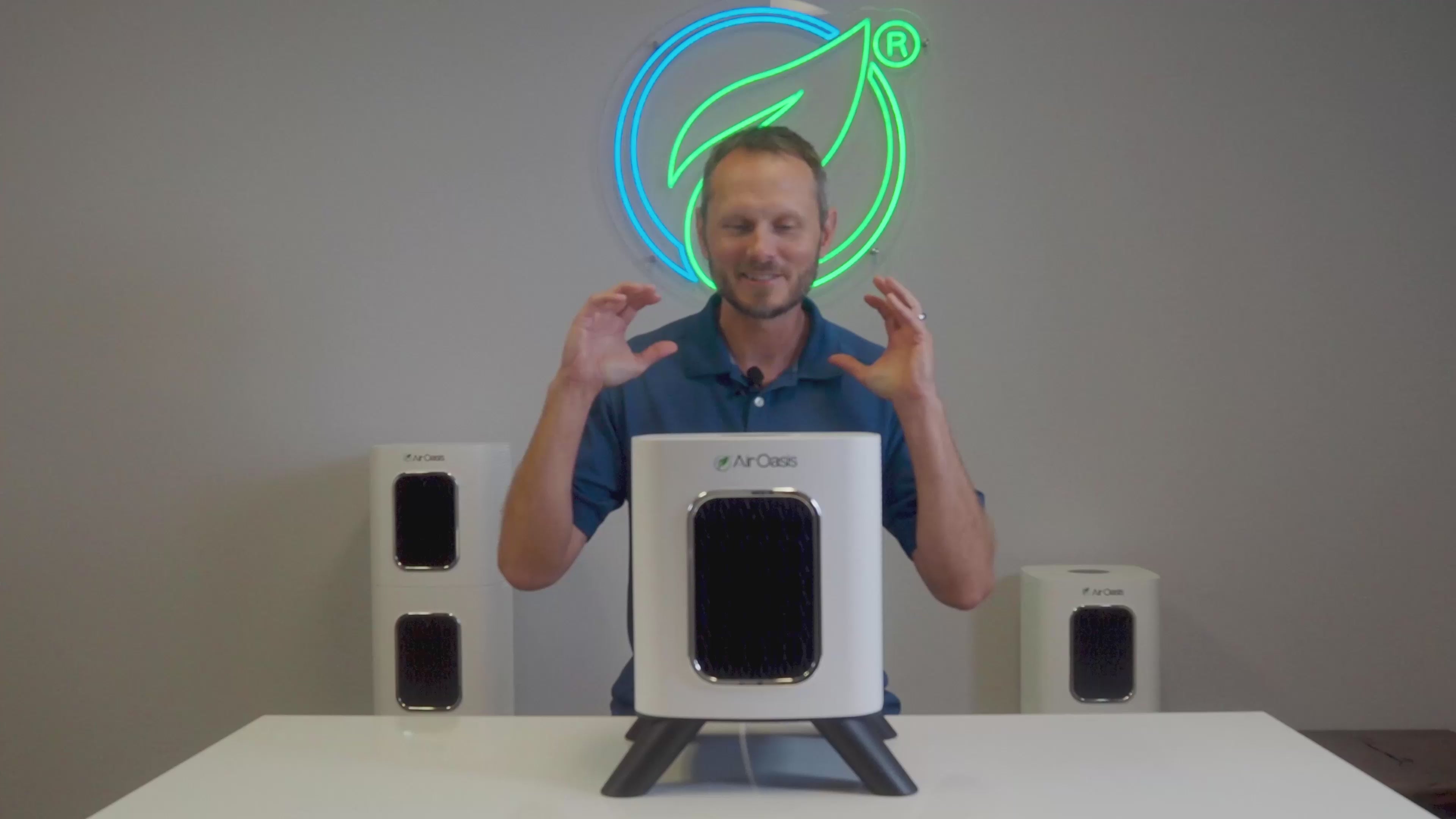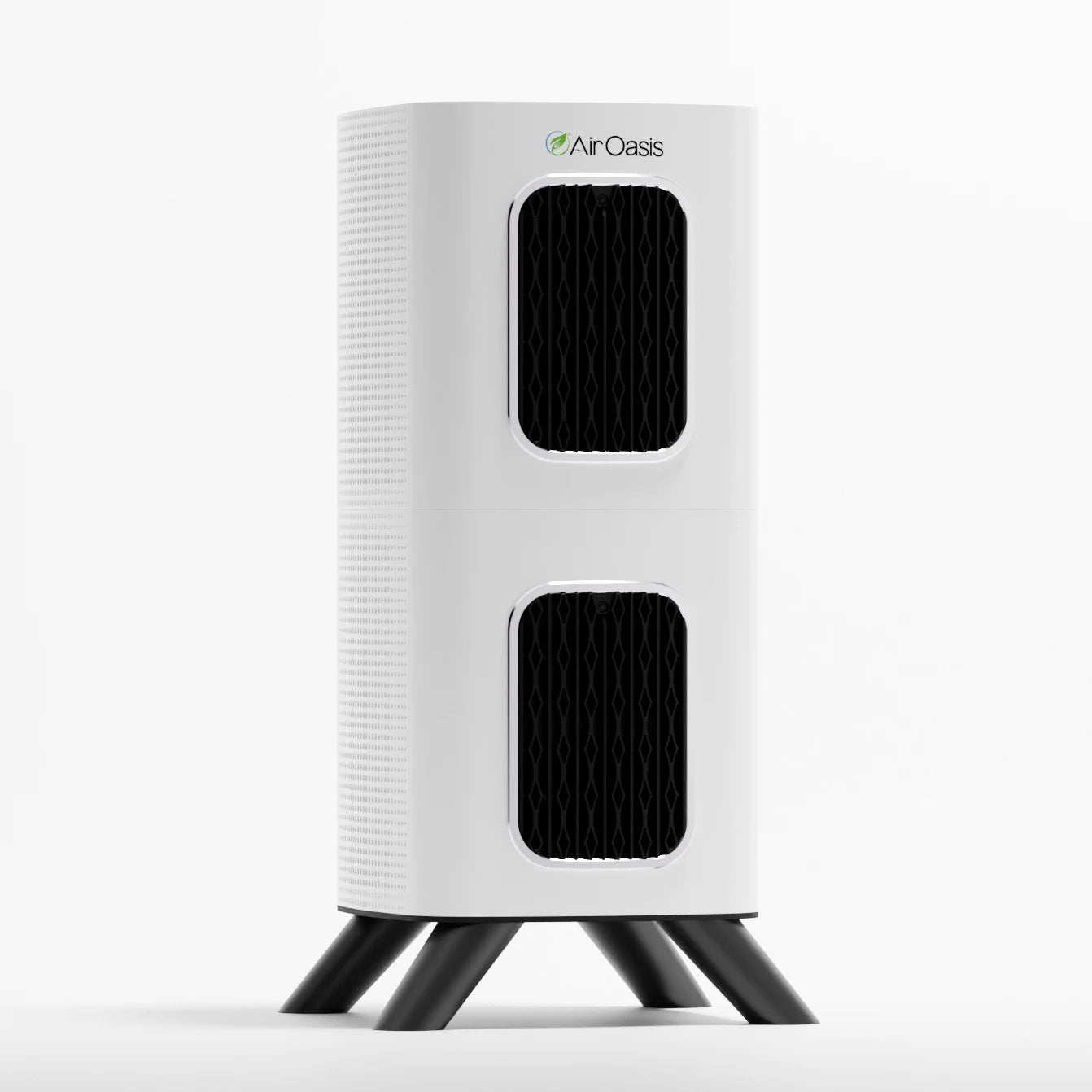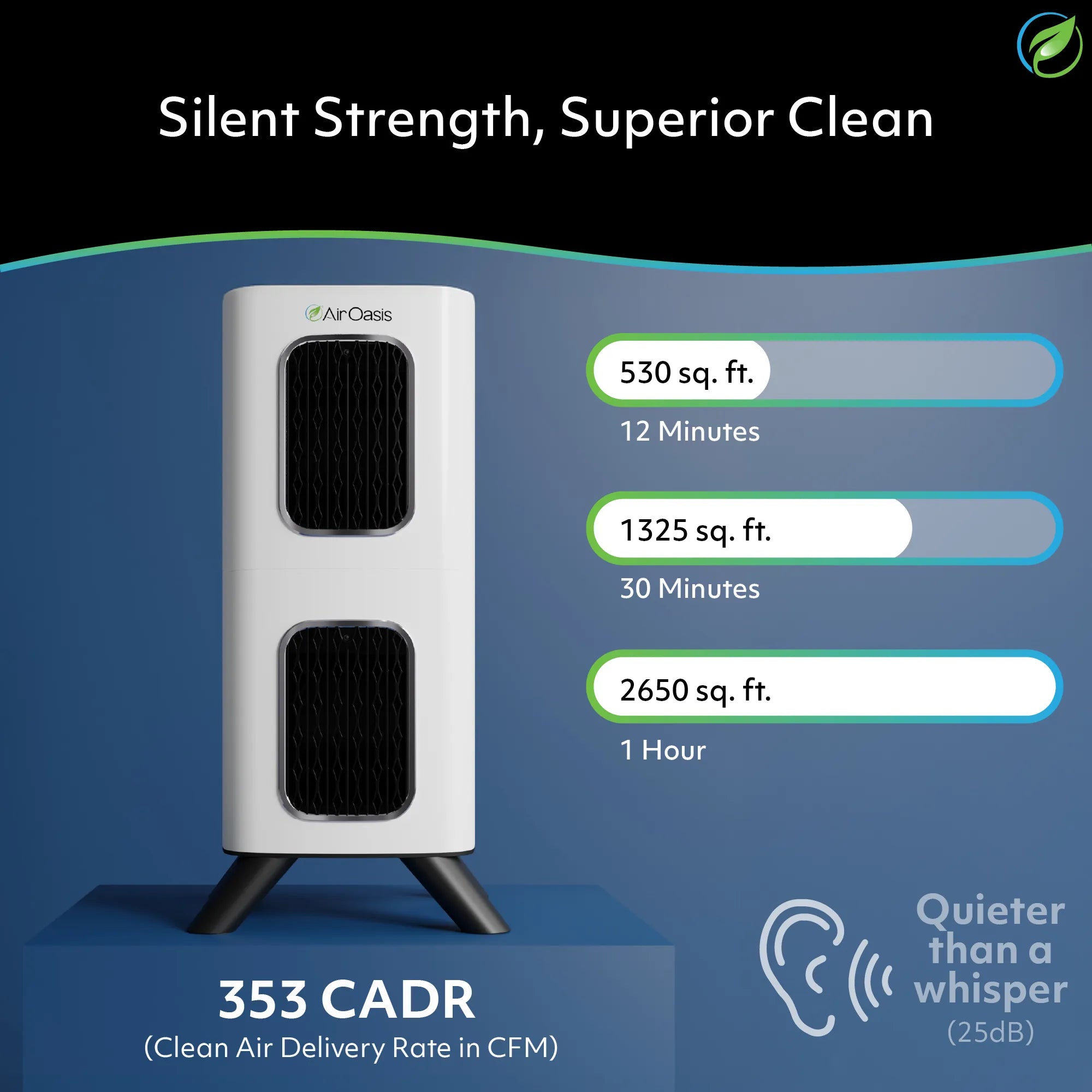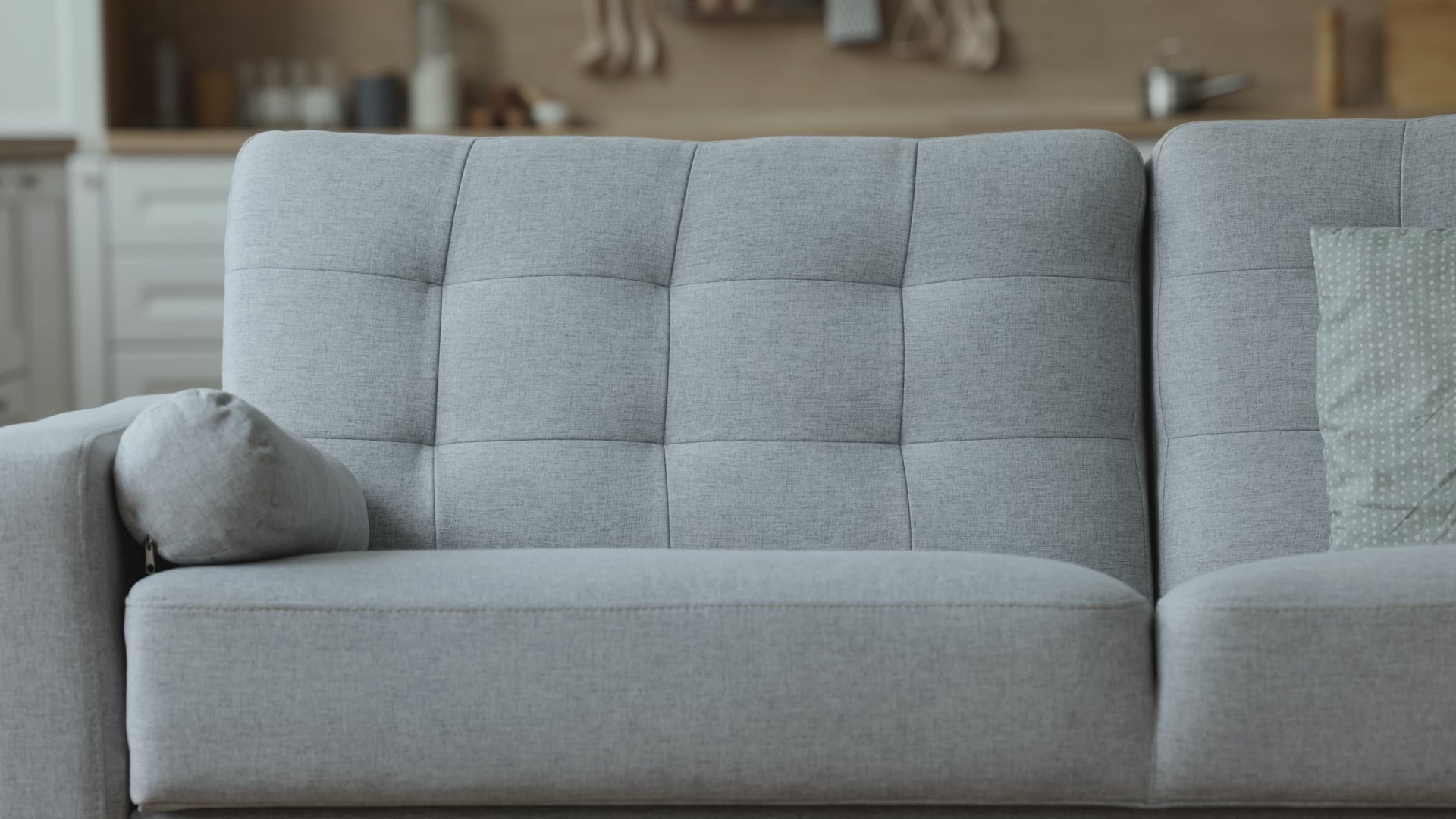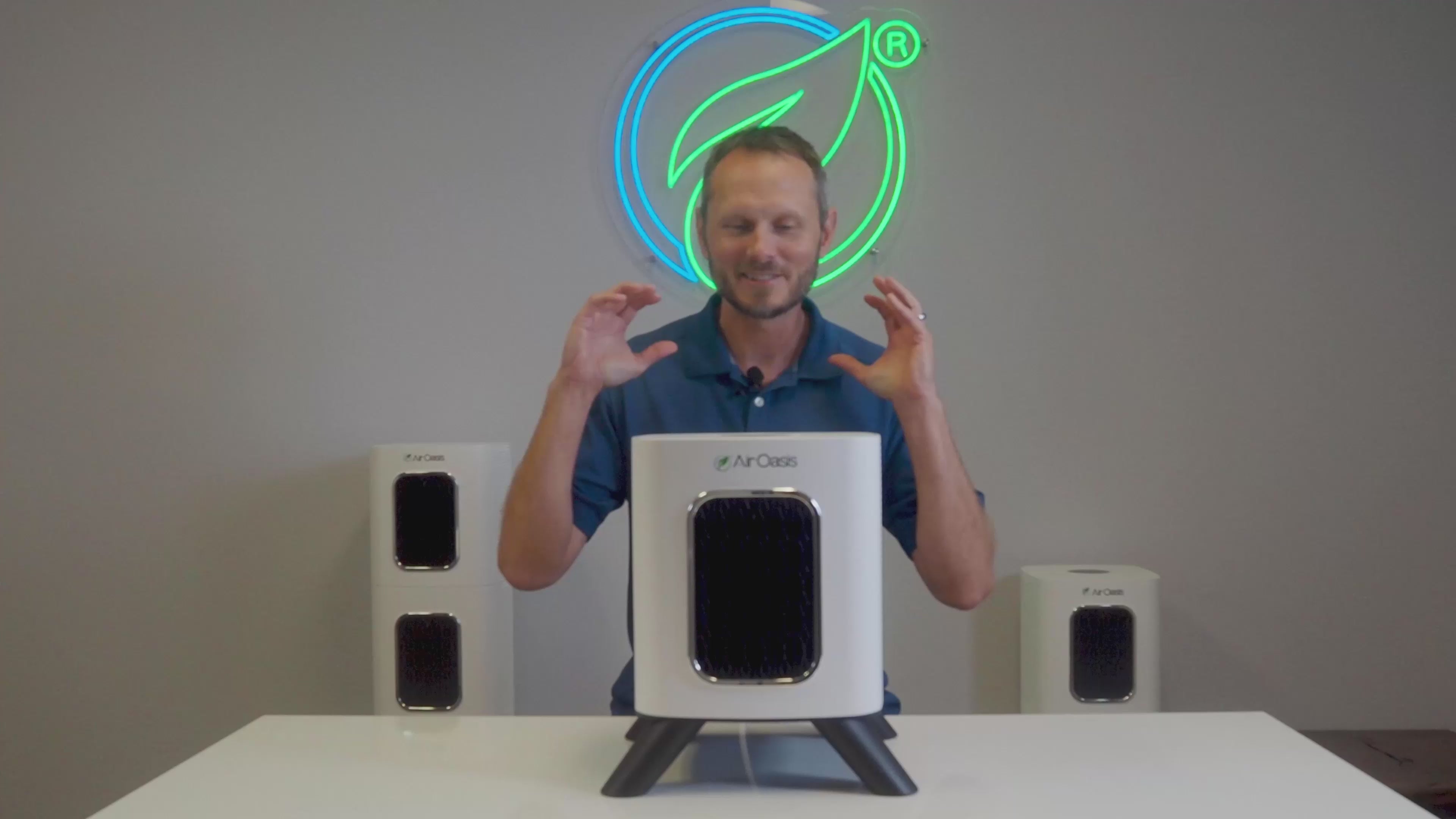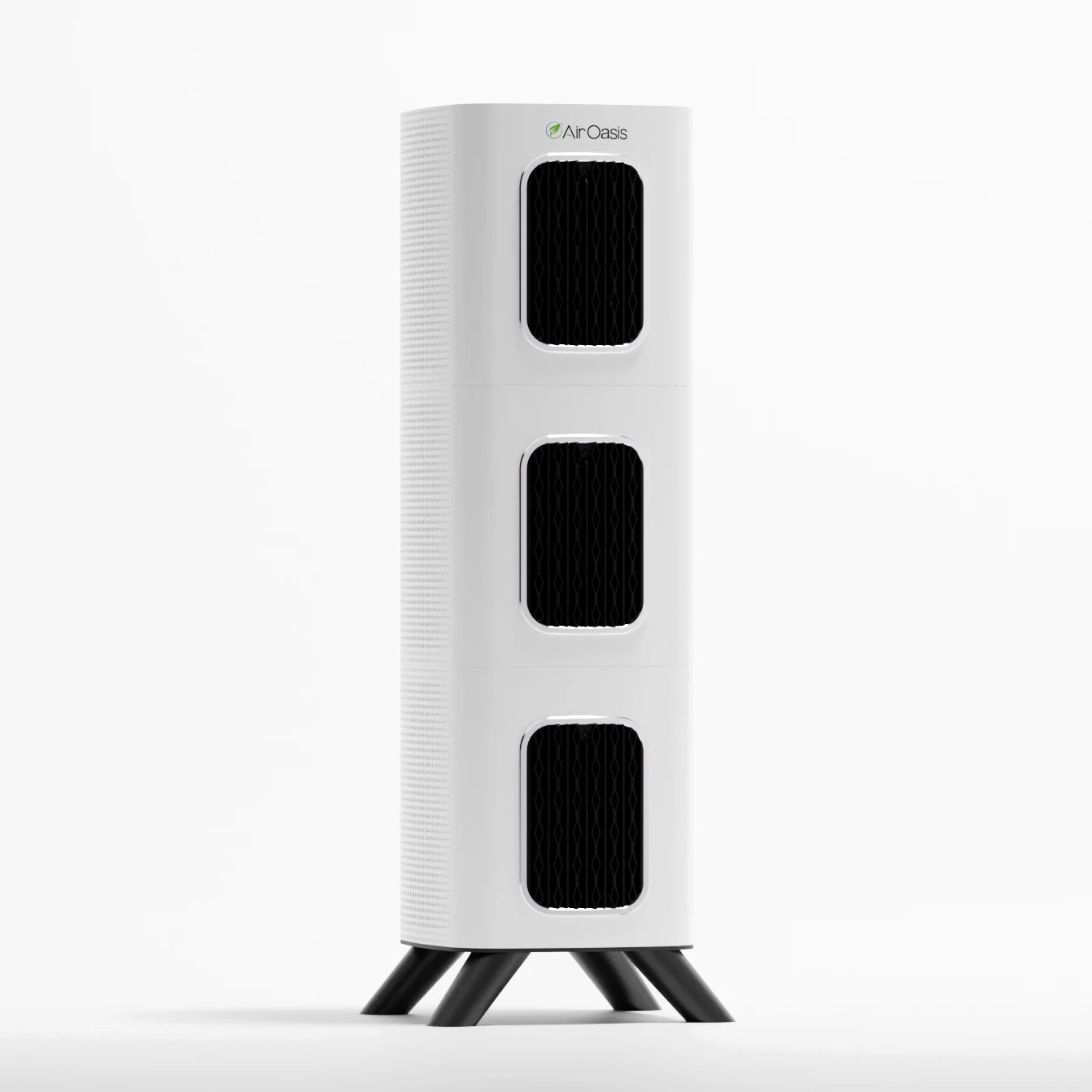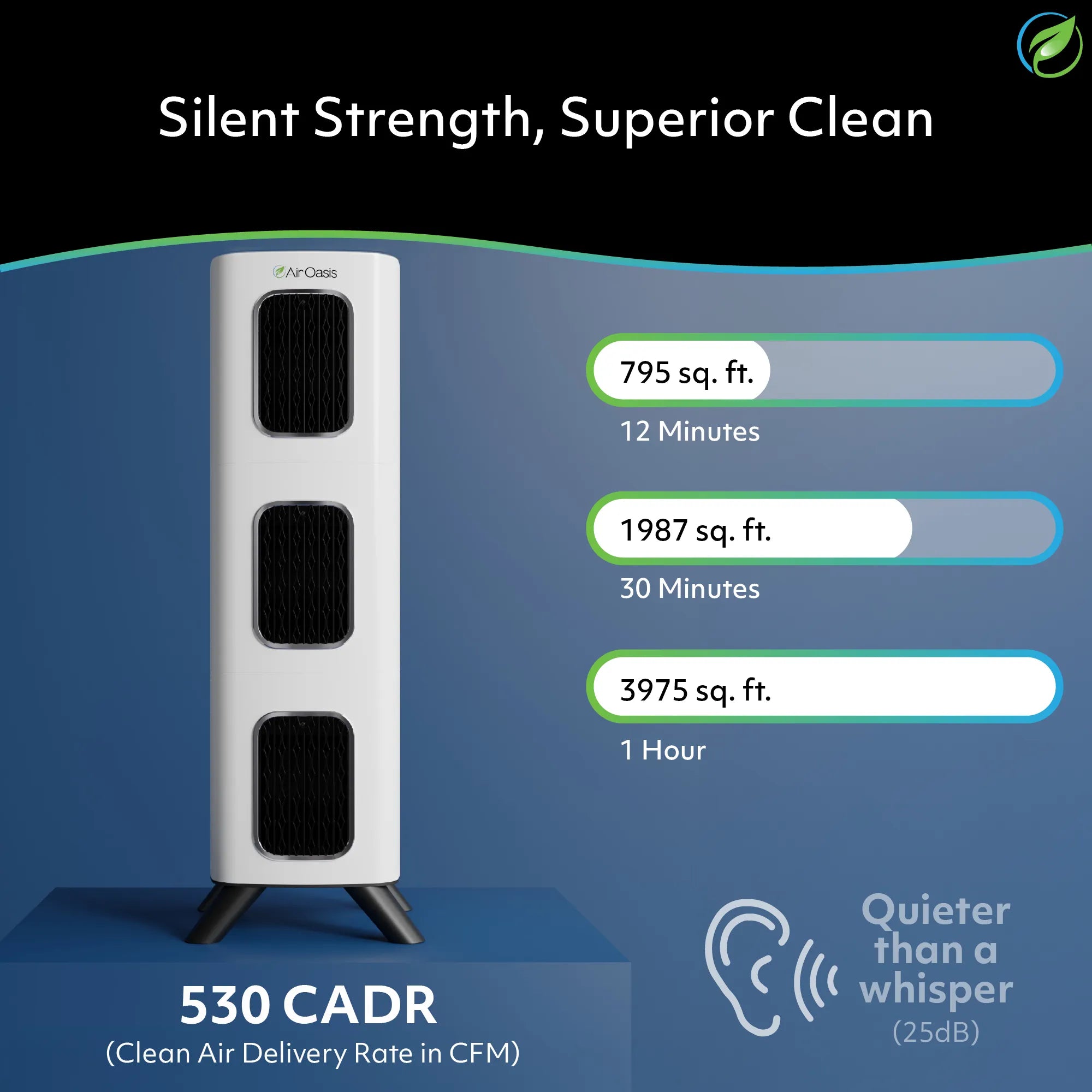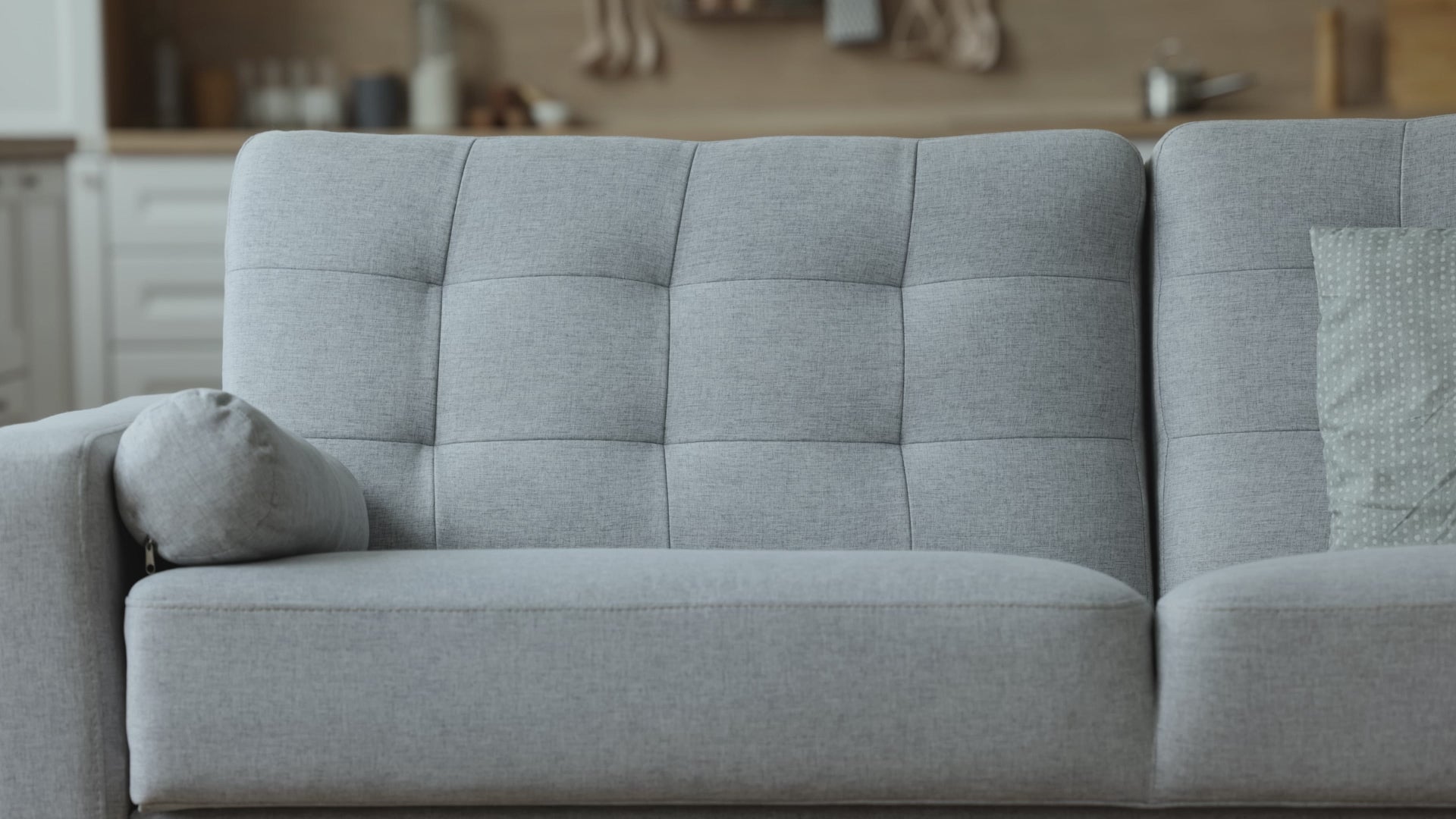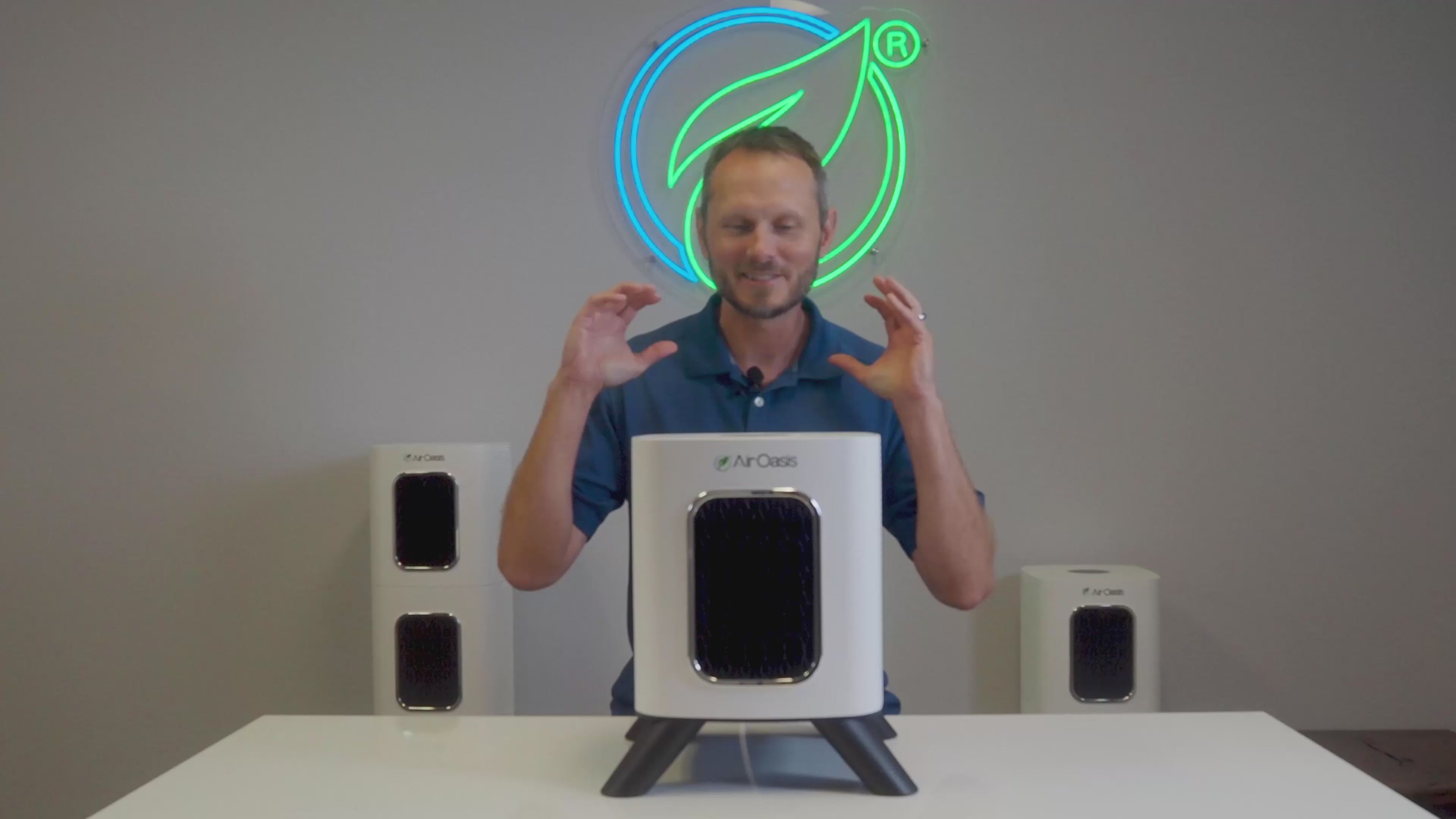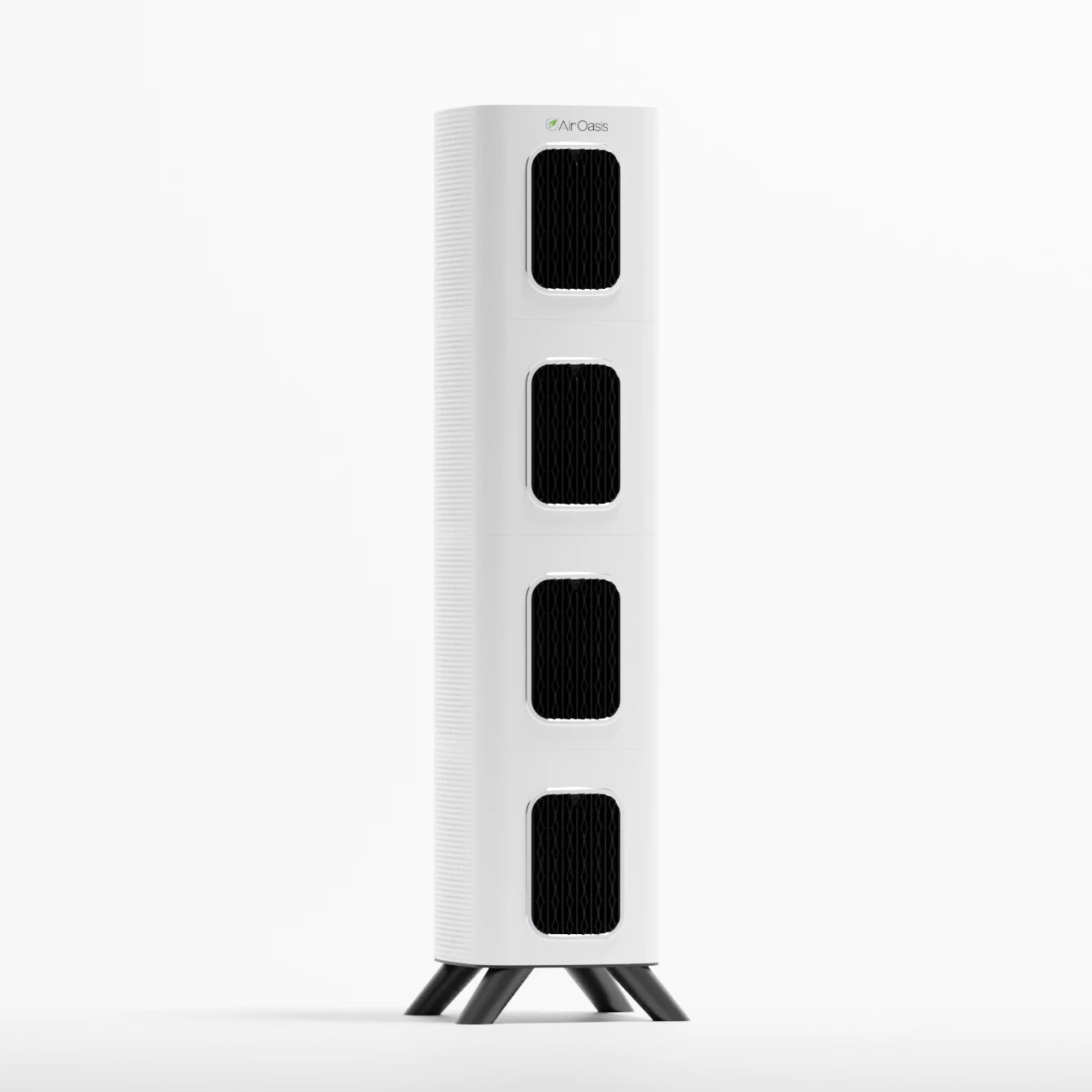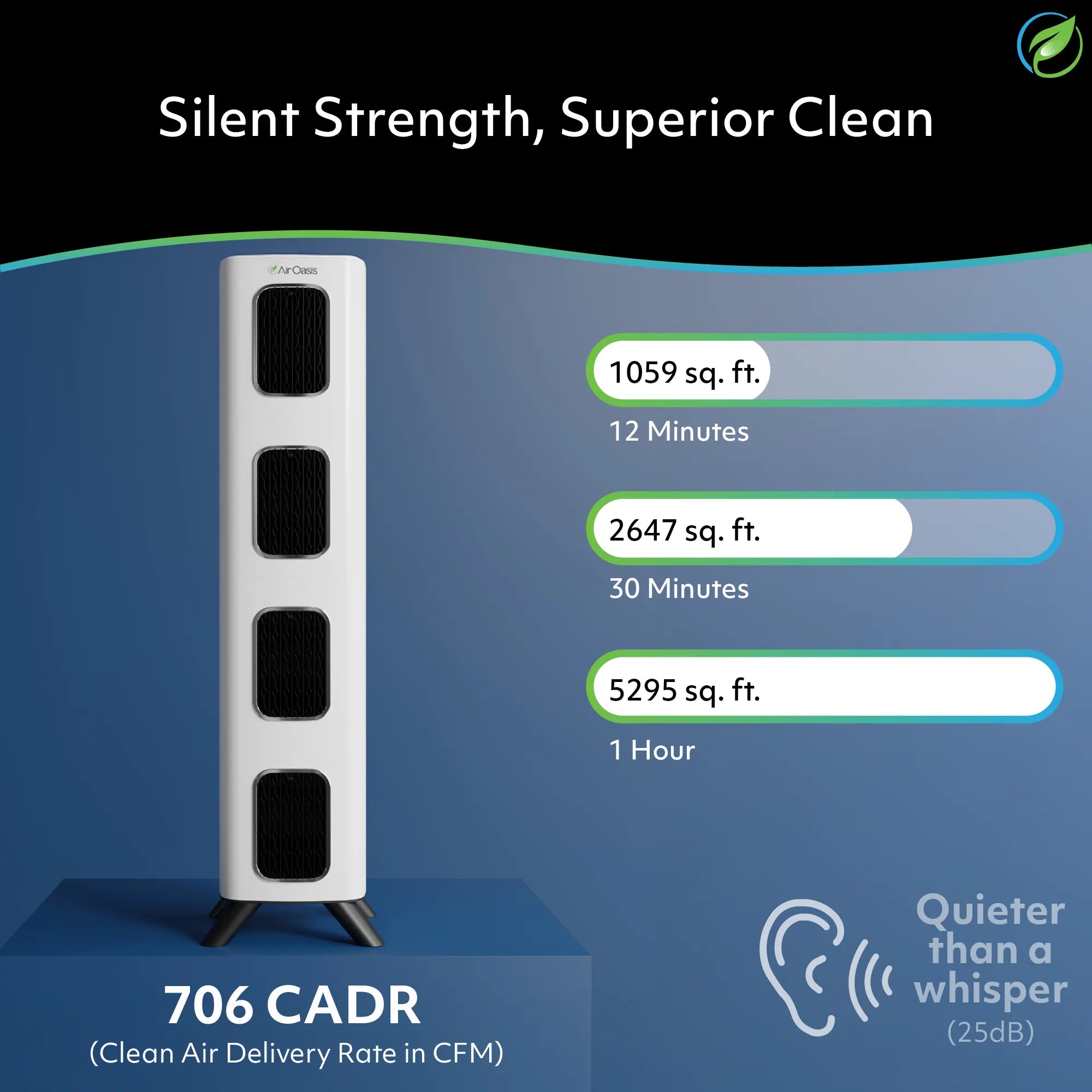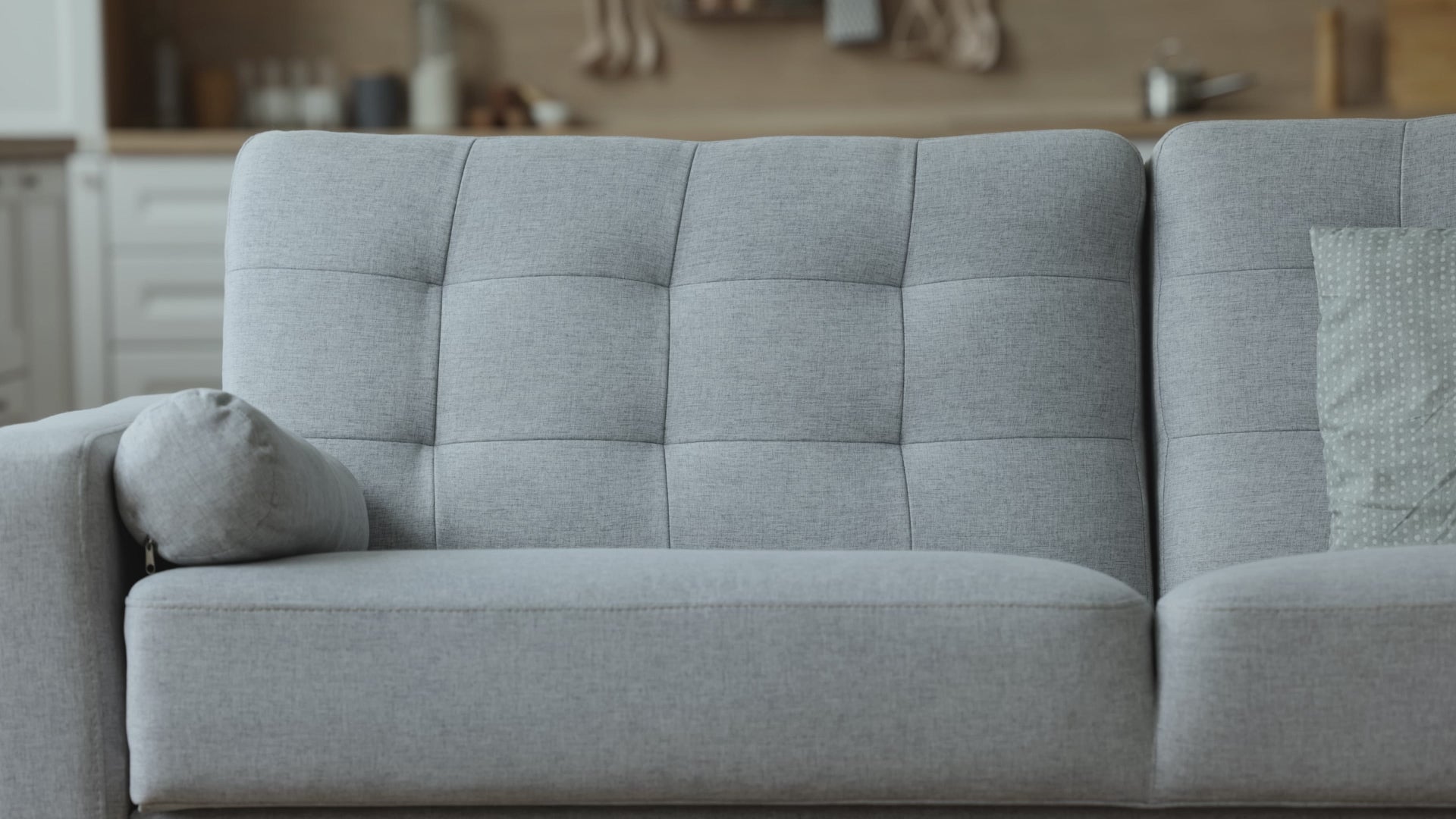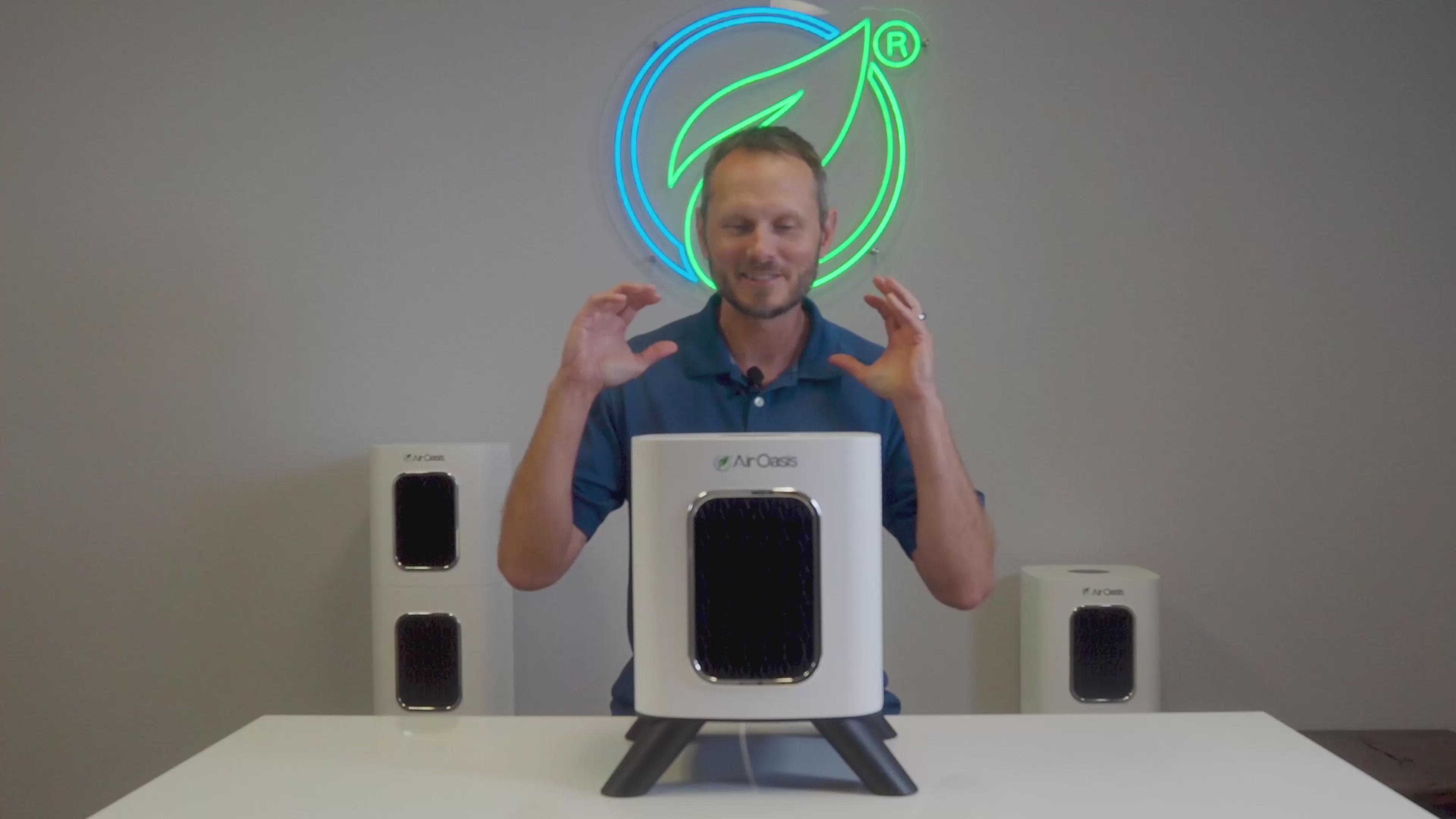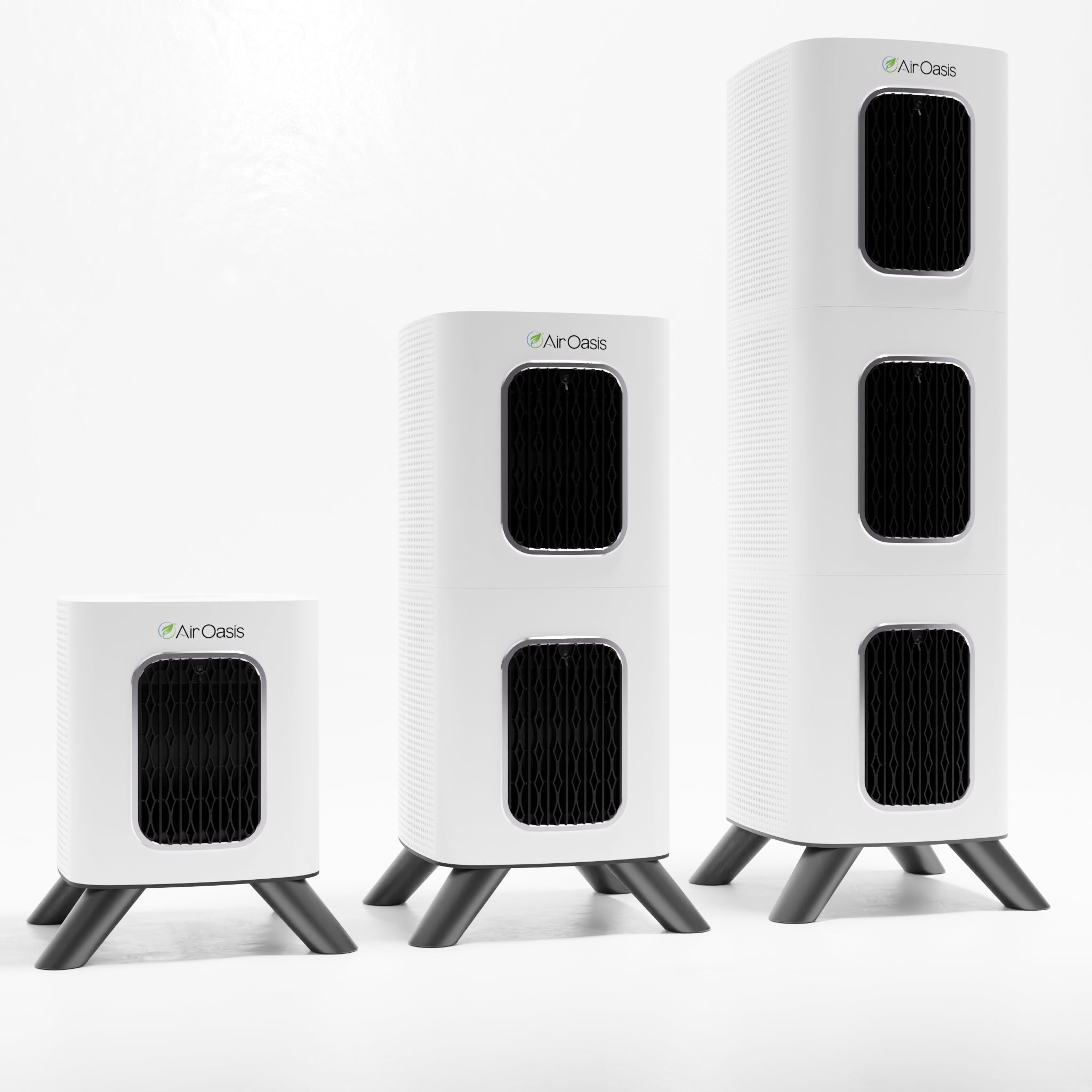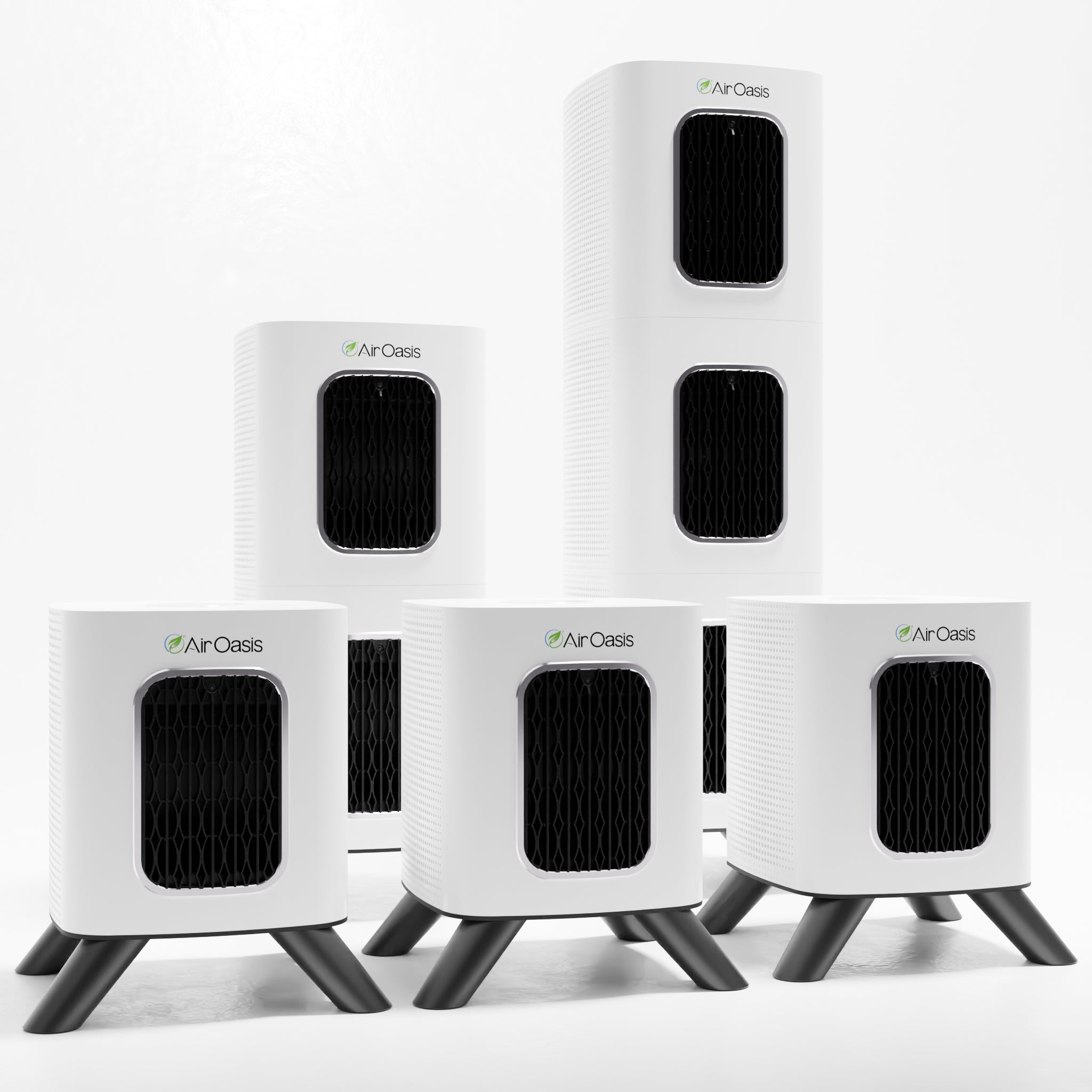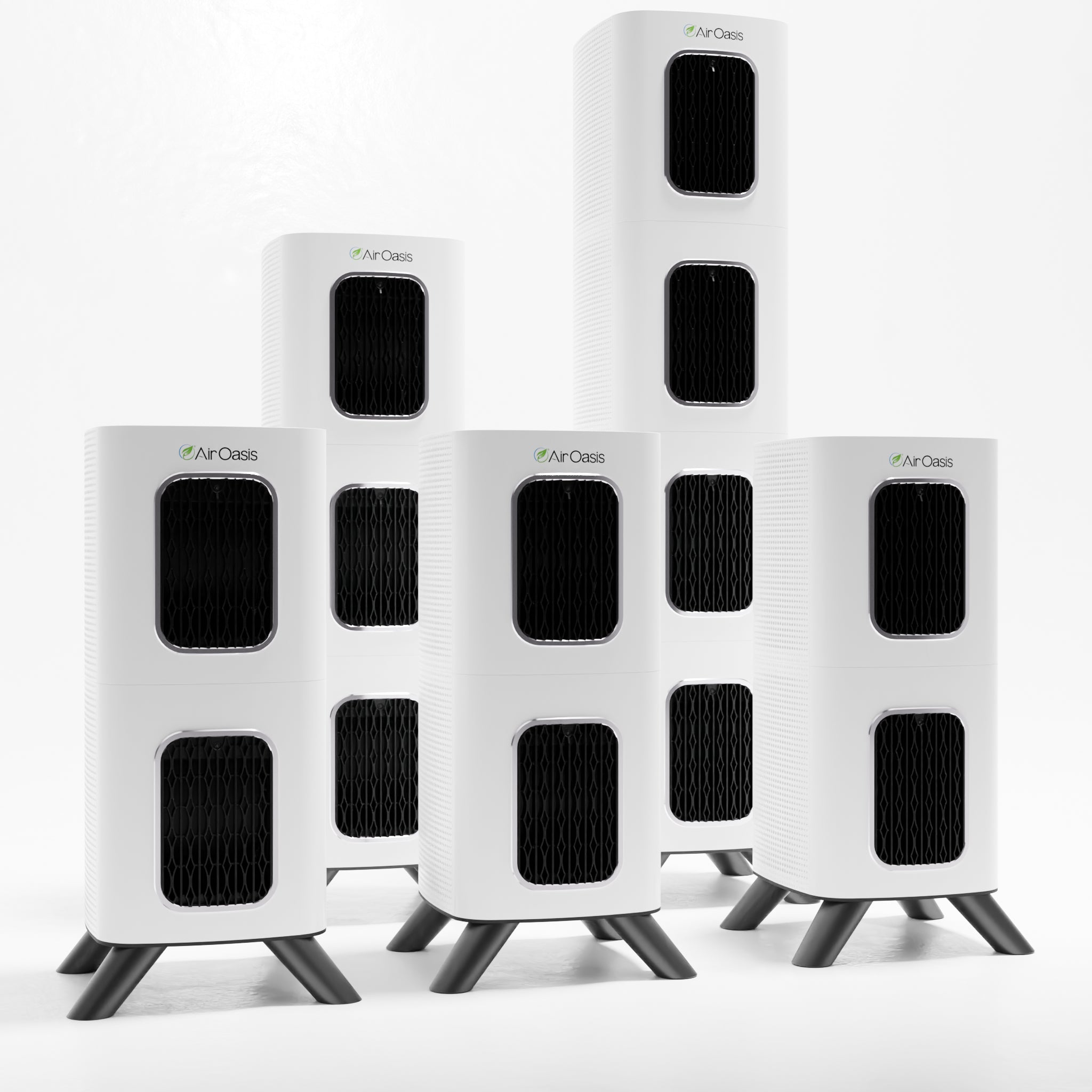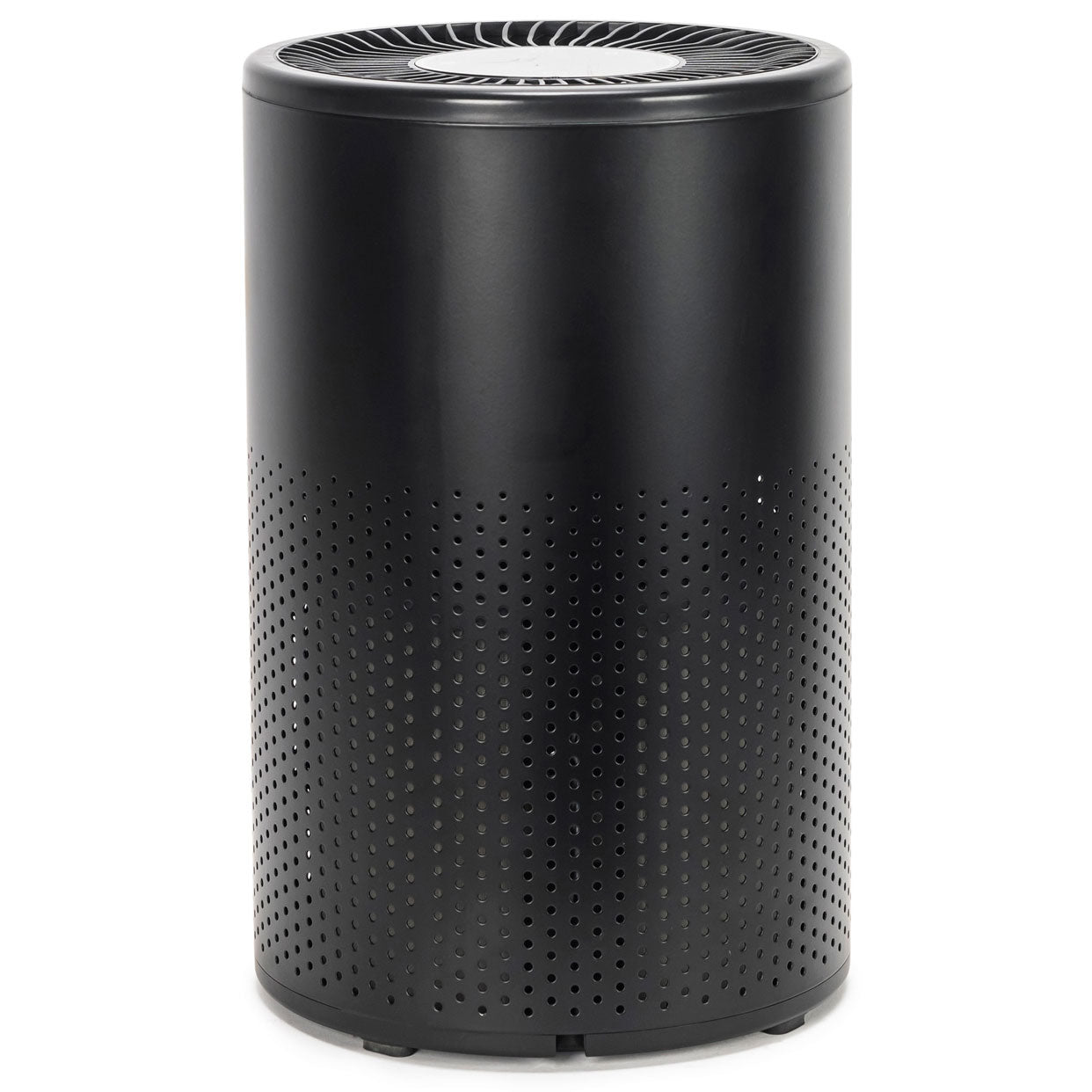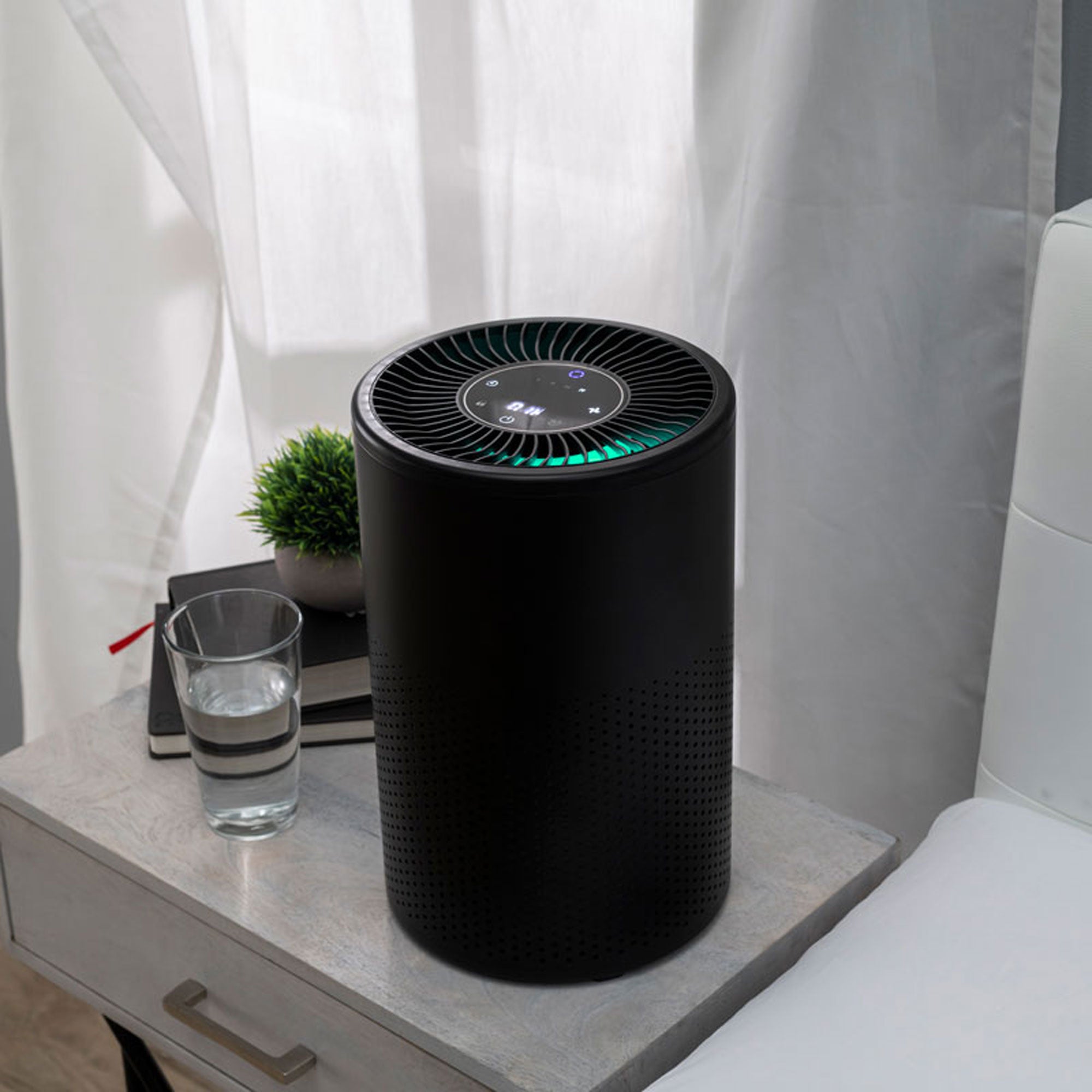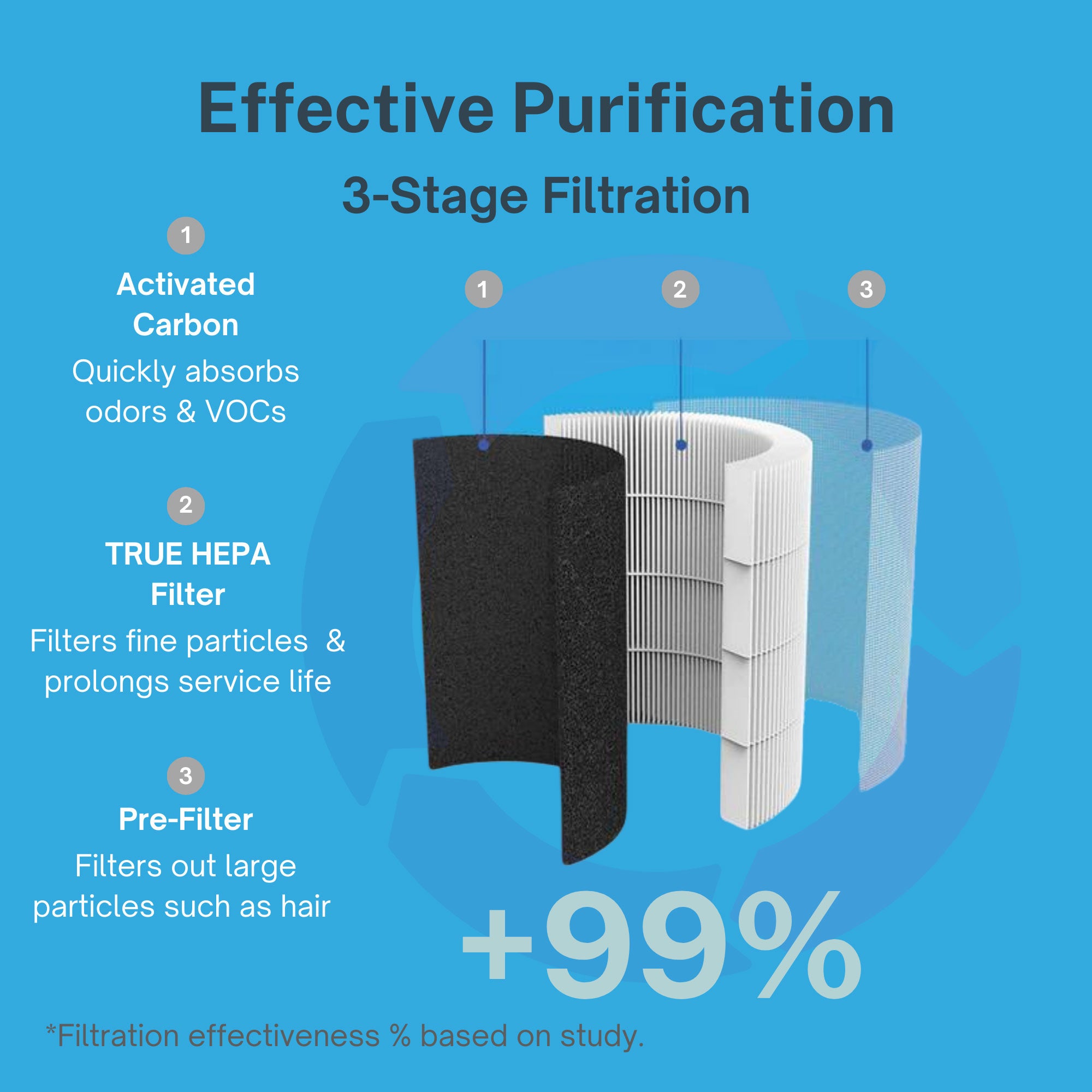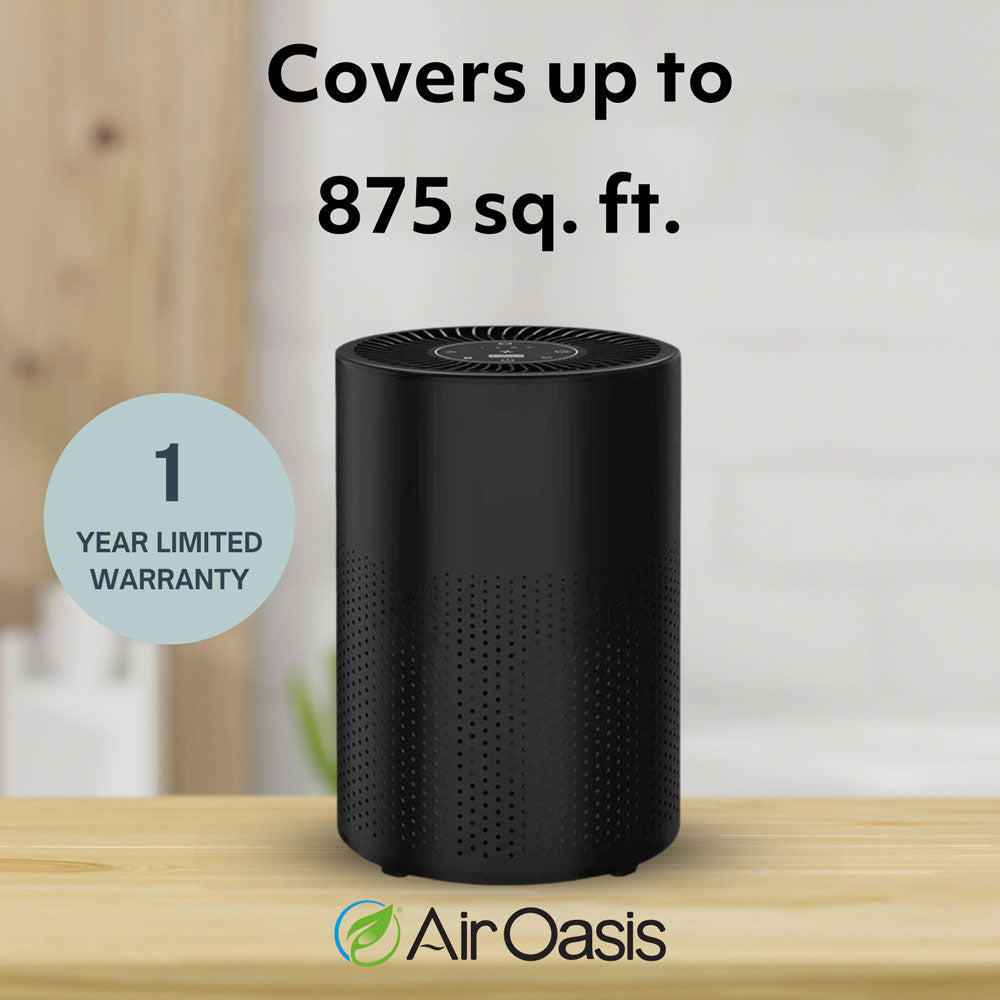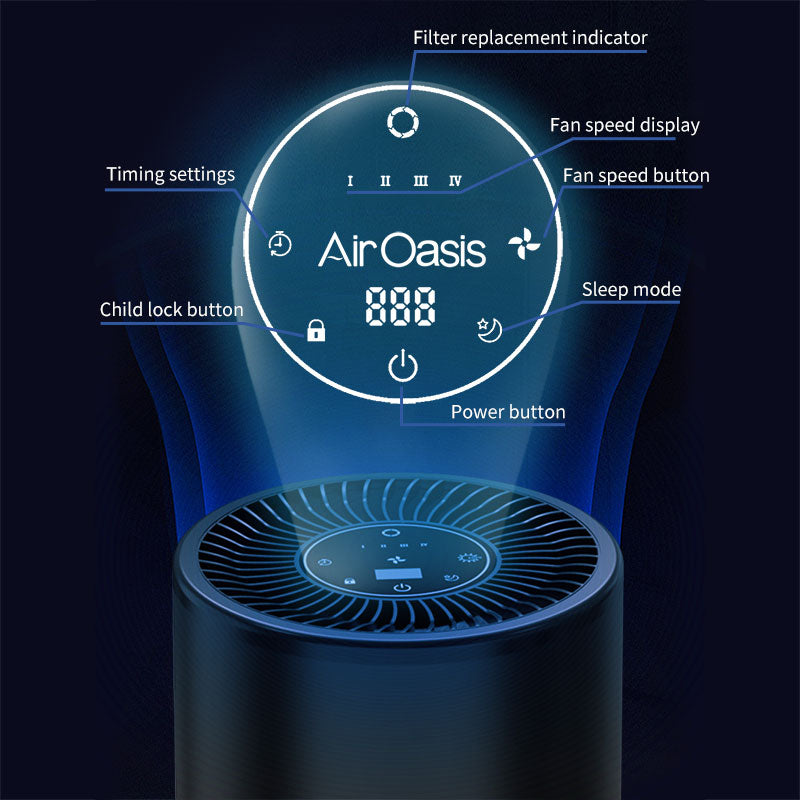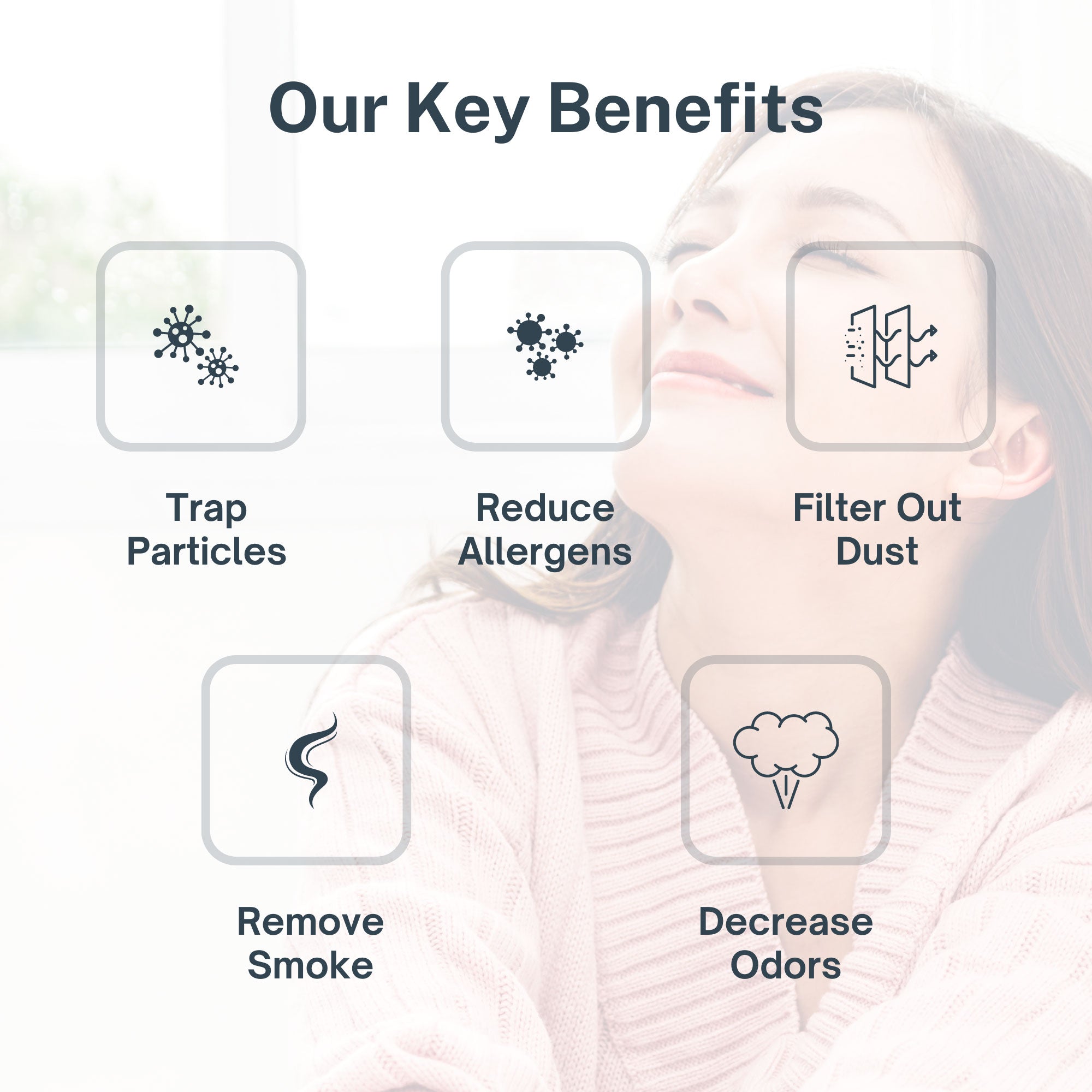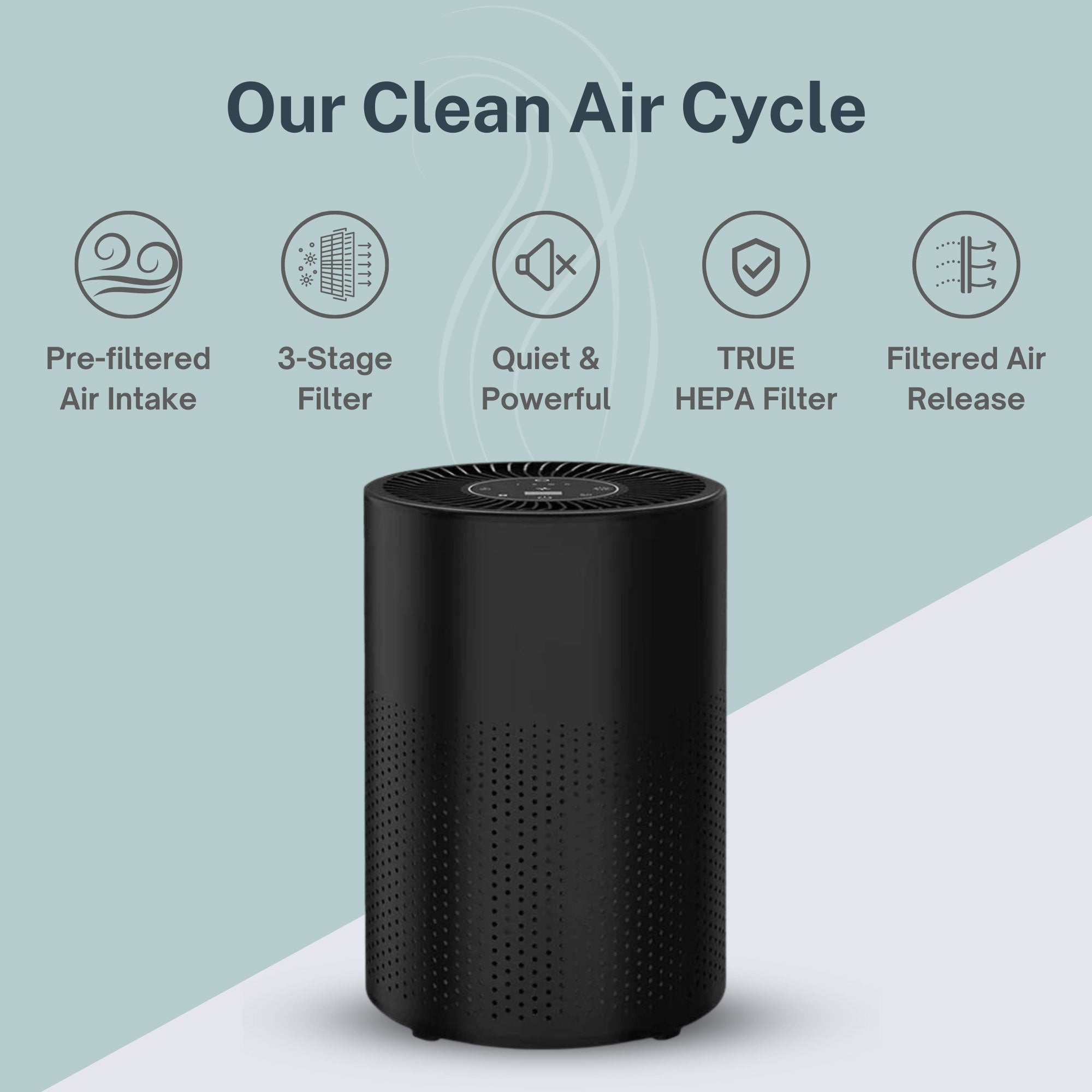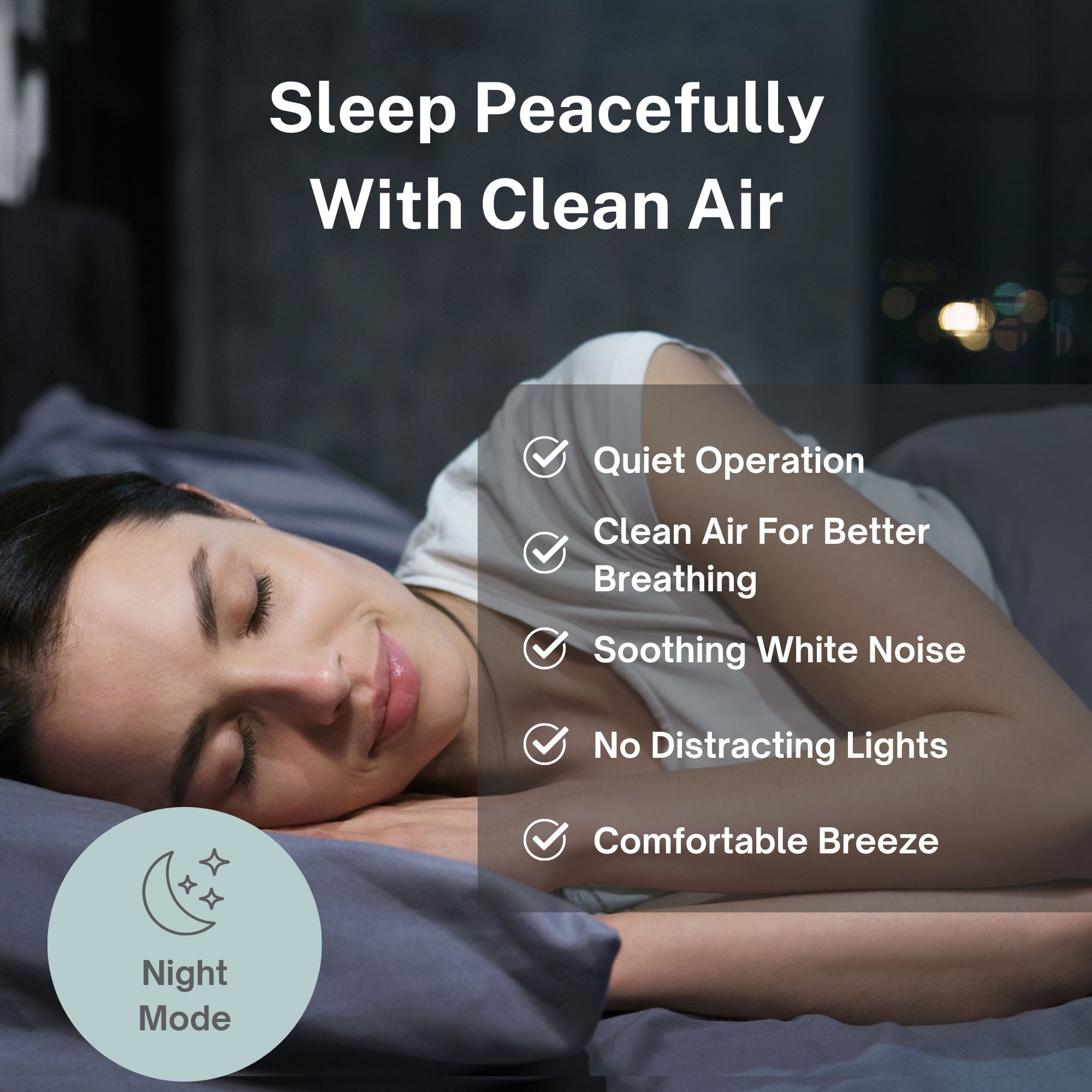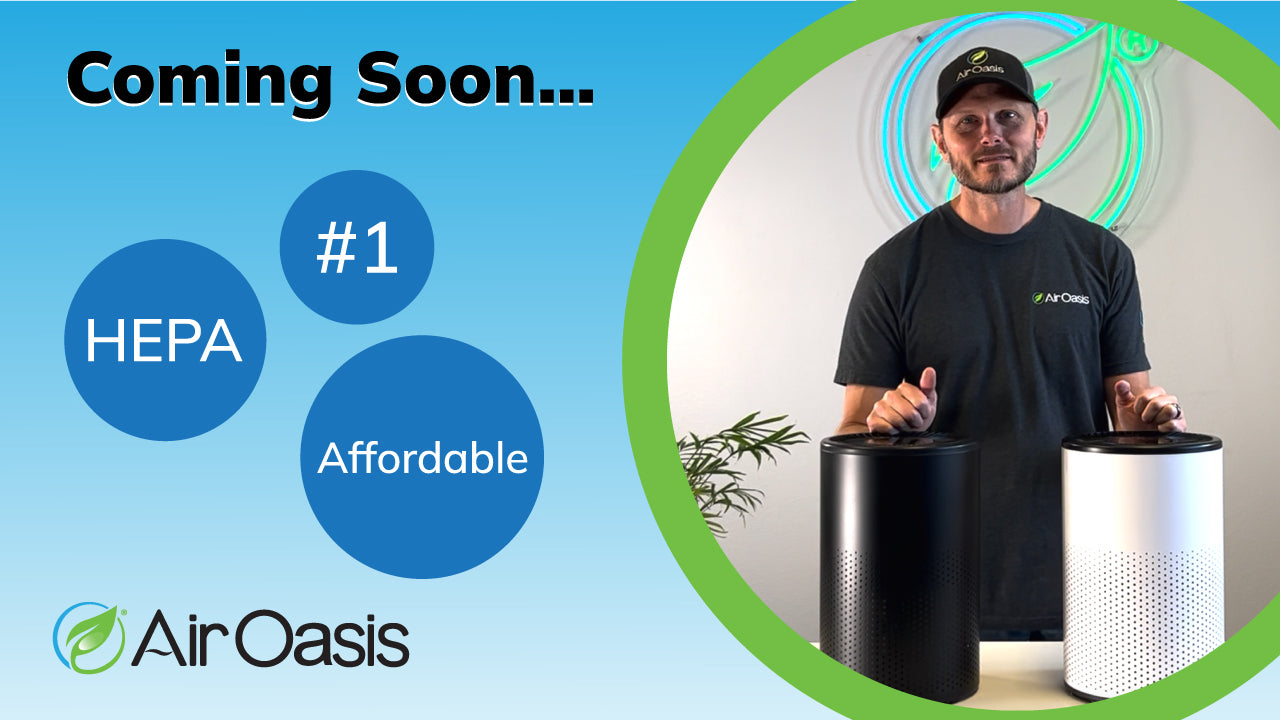General allergies affect millions of adults and children every year. Hay fever is a common ailment among the many allergens in our outdoor and indoor air. Regularly confused with the common cold, hay fever symptoms can lead to uncomfortable and prolonged reactions that can be detrimental to your overall health.
While steering clear of the source of allergens is a proactive step, using a high-quality air purifier will remove allergy-causing contaminants from your indoor air. This article will cover how to identify if you are suffering from hay fever and how to best alleviate your symptoms by improving the air quality with an air purifier.
Hay Fever Season
Allergic rhinitis, also known as hay fever, causes cold-like symptoms in most individuals. Other symptoms include a runny nose, congestion, water or itchy eyes, sneezing, cough, itchy nose, postnasal drip, swollen and bruised-appearing skin under the eyes, and extreme fatigue.
Hay fever, however, is not caused by a virus like most common colds. Hay fever is caused by an allergic reaction to a harmless indoor or outdoor substance the body identifies as harmful (i.e. allergen).
Any common allergen, including pollen, dust mites, and pet dander, can trigger hay fever symptoms. Other hay fever triggers include grass pollen in late spring and summer, tree pollen in early spring, and ragweed pollen in the fall. Dust mites, cockroach droppings, and pet dander can trigger allergy symptoms year-round. Indoor or outdoor mold or fungi can trigger seasonal and year-round symptoms depending on the type and the climate.
Hay Fever Allergies
The effects and symptoms of hay fever vary in each individual. Some people who suffer from hay fever experience symptoms that can make an individual feel miserable, affecting their overall mental health and ability to perform at school or work. On the lesser end, symptoms will be a regular annoyance, but for those that hay fever affects severely, symptoms can interfere with one's daily life.
Hay fever allergies can be differentiated from the common cold by a few key factors. Hay fever symptoms will be present directly after exposure, whereas symptoms develop one to three days after exposure with a cold. Hay fever symptoms will persist as long as the individual is in contact with the allergen, while a common cold typically lasts five to seven days.
Individuals at a higher risk for hay fever include those with existing allergies or asthma, having a relative with allergies or asthma, living or working in a high allergen exposure environment, having dermatitis or eczema, or being exposed to smoke, strong odors, and other pollutants.
Air Purifiers & Hay Fever
With hay fever, the immune system identifies a harmless airborne substance as harmful. To protect itself, the immune system produces antibodies to protect against the identified allergen. With these newly built antibodies, the next time the body comes in contact with the allergen, it signals the immune system to release chemicals into the bloodstream. This reaction is what causes the symptoms of hay fever listed above.
Using an air purifier helps to remove the airborne substances from the indoor air that cause an immune response in the body. The best way to limit an immune response, or allergic reaction, is to eliminate exposure to the response-causing substance.
Which is the Best Air Purifier for Hay Fever?
Using one of the best air purifiers, like the iAdaptAir®, eliminates 99% of airborne contaminants that cause allergies. Five technologies are used to clean air: a true H13 HEPA filter, a carbon filter, a silver ion filter, a germicidal UV light, and bi-polar ionization. The iAdaptAir layers these technologies to effectively combat allergy-causing contaminants year-round. In addition other Air Oasis air purifiers with and without HEPA filters have a UV lamp that kills germs that pass through it. The UV light rays also work with the AHPCO® catalyst to create catalytic molecules. Essentially, an air purifier works by spreading out and neutralizing carbon-based molecules from smoke, mold, and a variety of other indoor allergens.
What is the optimal Clean Air Delivery Rate (CADR)?
The clean air delivery rate (CADR) is a measure used to assess the performance of air purifiers. CADR is reported in cubic feet per minute (CFM) with higher measures indicating that the air purifier cleans the air efficiently. There are three numbers linked to a CADR and they correspond to smoke, dust, and pollen. AHAM developed this air filtration standard and recommends that consumers follow the 2/3 rule when it comes to selecting an air purifier for the home. The rules states that the CADR of your air cleaner should be equal to at least two-thirds of the room size
This is important when finding the best air purifier because the more efficiently the purifier removes the airborne particles and air pollutants, the more effective it will be in improving the air quality for those who suffer from hay fever.
How Well Do Air Purifiers Work for Allergies?
Improving indoor air quality is the best way to control indoor allergens. Everyone's air is full of microscopic particles, some of which are dangerous to our health and others that cause specific allergy symptoms for certain individuals. Even though air may smell clean, it doesn't mean it is or that an allergy-prone individual will not react to the allergens.
Practices such as regular cleaning, keeping doors and windows closed during allergy season, ensuring proper ventilation, preventing pet dander by keeping pets outdoors, controlling pests, and routinely checking for mold all help to reduce allergens in indoor environments. However, the best way to fight indoor allergens is to run an air purifier designed to handle tiny particles like allergens.
Do Air Purifiers Help With Pollen Allergies?
Many air purifiers improve air quality and can help relieve symptoms caused by pollen allergies by removing pollen from the indoor air you breathe. Seasonal allergies occur at different times of the year, triggered by numerous environmental factors. With the changing seasons, different kinds of airborne pollen are released, which can cause hay fever symptoms.
The iAdaptAir™, for example, uniquely combines multiple filter stages with what is known as ionization. Bi-polar ionization, also known as cold plasma ionization, not only deactivates specific airborne contaminants it also helps clear the air by causing dust, dander, pollen, and other particles to draw to each other and get too heavy to float. They fall from the air, leaving it more clean. In the case of the iAdaptAir, it can capture any particular matter such as pollen, dander, dust, and mold spores that is drawn into the purifier, making it a perfect strategy for people looking to reduce pollen allergies.
Can Air Purifiers Make Allergies Worse?
While an air purifier, especially with a HEPA filter, will almost always improve allergy symptoms, there are instances where the use of an air purifier can worsen symptoms. Typically, this is due to ionizer units malfunctioning, which increases the number of allergens and dust in the air. Refer to the owner's manual of your air purifier, and replace necessary filters and parts in a timely manner to make sure you don't run this risk.
Short of a unit malfunctioning and failing to remove allergy triggers from the air, a quality air purifier will reduce allergy symptoms and improve indoor air quality.
Find an Air Purifier to Help With Hay Fever
Air filters can eliminate allergens in the air, but depending on the quality of the filtration system, they can help to varying degrees. The best air purifiers will boost the overall air quality in your home. Clearing common allergy triggers from the air, such as dust, dirt, pollen, and pet dander will reduce detrimental allergy symptoms, like those caused by hay fever.
Proven effective against up to 99% of allergens, purifiers like the iAdaptAir® utilize five key technologies to eliminate common contaminants from the air and reduce allergy-causing symptoms. Click here to shop for air purifiers for hay fever and other allergies.
